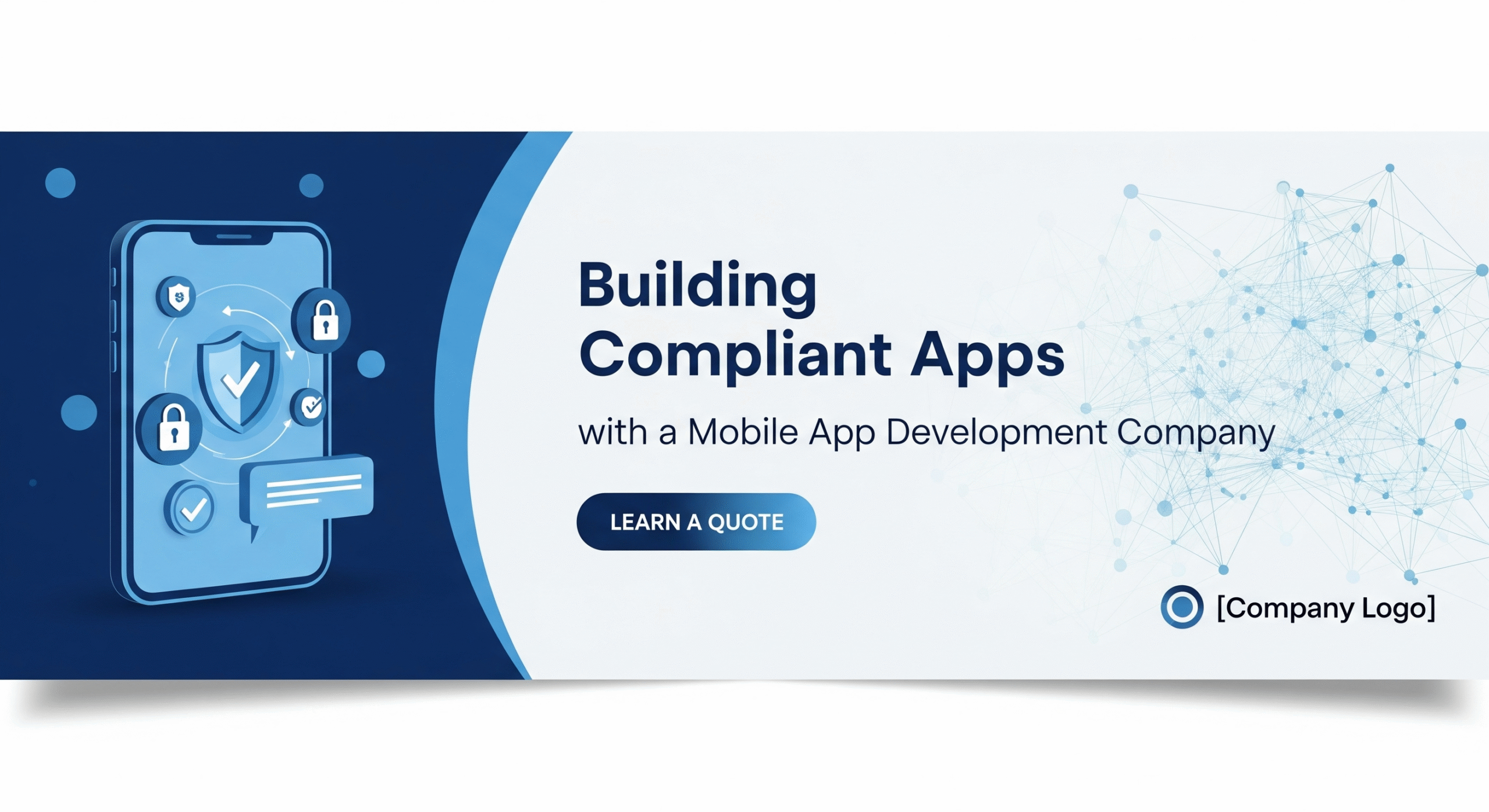In today’s digital-first world, businesses rely heavily on mobile applications to connect with their customers, streamline services, and stay competitive. However, building an app is no longer just about functionality or design. With increasing regulations on data security, privacy, and accessibility, compliance has become a crucial factor in mobile app development. Partnering with a professional mobile app development company ensures that businesses not only get a feature-rich app but also one that meets industry standards and legal requirements.
Why Compliance Matters in Mobile App Development
Mobile apps handle massive amounts of sensitive information — from payment details and personal identification data to health and location records. Any non-compliance can result in severe consequences, including:
- Legal penalties from failing to meet data protection laws such as GDPR in the UK or CCPA in California.
- Loss of customer trust if users feel their data isn’t secure.
- App store rejections, since both Apple and Google have strict policies around privacy and security.
In short, compliance isn’t optional. It’s a business-critical aspect of mobile app development that should be baked into the process from the very beginning.
The Role of a Mobile App Development Company
Hiring a reliable mobile app development company gives businesses access to skilled app developers who understand compliance frameworks and how to implement them effectively. Instead of simply coding an app, these professionals follow structured processes to ensure the app meets legal, technical, and ethical standards.
Some of the key areas where a mobile app development company adds value include:
1. Data Protection and Security
With regulations like the GDPR, businesses must prove that user data is collected, stored, and processed securely. Professional app developers implement:
- End-to-end encryption for sensitive data.
- Secure APIs for third-party integrations.
- Two-factor authentication for user logins.
- Regular security audits and updates.
2. Accessibility Standards
Modern apps need to be inclusive, ensuring that people with disabilities can also use them effectively. A trusted mobile app development company follows accessibility guidelines such as WCAG (Web Content Accessibility Guidelines) by designing features like:
- Voice-enabled commands.
- Screen reader compatibility.
- High-contrast themes for better visibility.
3. Industry-Specific Compliance
Different industries face different compliance requirements. For instance:
- Healthcare apps must comply with HIPAA standards for patient data.
- Finance apps must follow PCI DSS regulations for secure transactions.
- E-commerce apps must ensure GDPR compliance for EU users.
Expert app developers tailor the app to meet these specific industry standards, saving businesses from compliance headaches later.
Benefits of Compliance-Driven Mobile App Development
Working with a mobile app development company that prioritizes compliance doesn’t just help avoid risks — it also brings measurable business advantages.
- Faster App Store Approvals – Apple App Store and Google Play both reject apps that don’t meet compliance rules. A compliant app faces fewer hurdles during submission.
- Enhanced Brand Reputation – Customers today value transparency and data security. A compliant app signals that the business is trustworthy and reliable.
- Reduced Legal Risks – Non-compliance fines can reach millions of pounds. Investing in compliant mobile app development is far cheaper than facing lawsuits or penalties.
- Better User Retention – Users are more likely to continue using an app they know protects their personal information.
Choosing the Right Mobile App Development Partner
Not all app developers are equally equipped to handle compliance. When searching for the right partner, businesses should look for the following qualities in a mobile app development company:
- Experience with compliance-heavy projects – Check their portfolio for apps in healthcare, fintech, or other regulated industries.
- Knowledge of global laws – Regulations differ across countries, so ensure they understand GDPR, CCPA, HIPAA, and PCI DSS.
- Robust testing and QA processes – Compliance isn’t a one-time step. Continuous testing and updates are essential.
- Strong communication – The best app developers explain compliance requirements clearly without overwhelming technical jargon.
Future Trends in Compliance and Mobile App Development
Compliance in mobile apps is constantly evolving. A forward-thinking mobile app development company keeps up with these changes to ensure apps remain compliant long after launch. Some upcoming trends include:
- AI and compliance automation – Using AI tools to detect vulnerabilities and monitor compliance in real time.
- Privacy-first design – Apps that minimize data collection and maximize transparency.
- Stronger app store guidelines – Apple and Google are expected to tighten their rules even further around data use and permissions.
Businesses that ignore these trends risk falling behind, while those who embrace compliance as part of mobile app development gain a competitive advantage.
Final Thoughts
Building an app is no longer just about functionality or looks; it’s about responsibility. Regulations and user expectations have raised the bar, making compliance a must-have, not a nice-to-have. By working with a professional mobile app development company, businesses gain access to experienced app developers who understand both technology and the legal frameworks that shape it.
A compliant app not only protects businesses from penalties but also builds trust, boosts brand reputation, and creates a better user experience. In a marketplace where competition is fierce, compliance can be the difference between an app that succeeds and one that fails.



